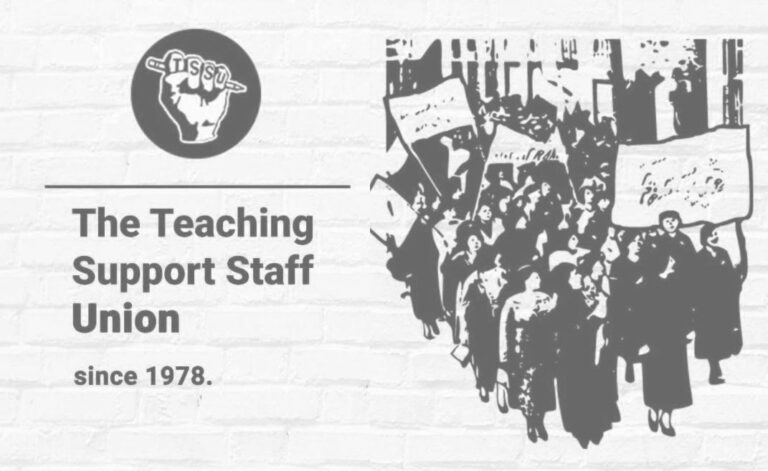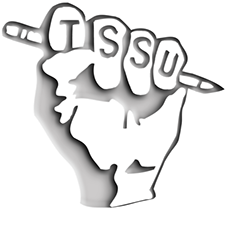Learning Outcomes & Teaching Flexibility


As you may know, there have been intense conversations taking place regarding the certification of our university. Below is a letter recently written by a professor of education here at SFU who has asked for this letter to be circulated. Towards the end of the letter, there is a link to a website where you can leave your comments about the Learning Outcomes. I think this is a relevant discussion for TSSU members as we write and rewrite course outlines on a regular basis not to mention many of us have taken and currently take classes here as well.
---------------------------------------------------------------------------------------------------------
Dear SFU Students,
If you like pre-requisites and the WQB requirement, you are going to love (!) what may be coming in the near future… Learning Outcomes.
But let me start at the beginning. I am a tenured professor here at Simon Fraser University, and it has bothered me for some time that there is a secret, heated debate going on among faculty members and administration. It is a debate that is all but hidden from the most important members of this university—students. Well, it’s not really hidden-hidden. It’s not hidden as in students are not allowed to know about this debate. Students can actually find information about the debate on the SFU website. But the debate is hidden in the sense that I’ve asked over a hundred students about this issue and none (none!) of them have ever heard of it.
The issue being debated is called the Learning Outcome & Assessment requirement. Let’s call it Learning Outcomes for short. This Learning Outcomes requirement may be here to stay if we don’t watch out.
My aim here is to make Learning Outcomes part of a university-wide debate, instead of having the debate hidden from most students. Right now, hundreds of professors and administrators, as well as exactly 16 students (who are on the SFU senate), are debating your future education.
So, a few facts: What is a Learning Outcome? It is a statement that says what students are going to learn. It is a statement like, “Students will be able to identify major differences between Shakespearean tragedy and Shakespearean comedy.” Assessment statements are also part of Learning Outcomes. An Assessment statement is something like this: “Students will write an analytic essay of 10 pages comparing and contrasting the genre of Shakespearean tragedy with that of Shakespearean comedy.” Now please pardon me, professors, if I’m not getting my Shakespeare right. I’m no expert on The Bard. And please note, students: Learning Outcomes are all about you. The professor is never mentioned in a Learning Outcome.
Where will we see learning outcomes? We will see them on course outlines, in the course descriptions that appear in the SFU Academic Calendar, as well as in the description of the particular program you have signed up for—Kin, Psych, Chemistry, Philosophy, English, etc.
Why are we being asked to adopt Learning Outcomes? Because SFU is coming under pressure from the NWCCU (Northwest Consortium of Colleges and Universities) to implement Learning Outcomes. Why would he be under such pressure? Because when we got the right to play sports in the NCAA (National Collegiate Athletic Association, based in the US), our university agreed to be a member of the NWCCU.
Why is there a debate over Learning Outcomes? Don’t we have to do what the SFU administration says? Not yet. The SFU Senate—which has 68 members, 16 of whom are students—is preparing to vote on the implementation of Learning Outcomes on April 8th.
If I were a student, I would be opposed to the Learning Outcome requirement. Why? A few reasons. First and foremost, students will have less of a voice in the classroom as a result of Learning Outcomes. This is because professors will not have the flexibility to deviate from the Outcomes they have created. Learning Outcomes will be created long before the first day of class. Professors will have pre-determined what you will learn, and what you will be marked on. Personally, I find that my students appreciate flexibility when it comes course content and assignments. They want more choices, more input, rather than less, in what they learn and how they are marked. But Students will not have a say in Learning Outcomes. To me this is just wrong. The best education happens when students have more of a voice in the classroom.
Second, Learning Outcomes will make education at SFU less flexible than it currently is. If there is anything that my students tell me again and again, it is that they hate the pre-requisite queue, and that they hate hunting all over the universe for the one available WQB course that they might happen to enjoy. I’m not saying that pre-requisites and WQB courses are wrong. What I’m saying is most students don’t like them because they make their experience at SFU too lock-step, too inflexible. Learning Outcomes are the classroom equivalent of frozen options like pre-reqs and the WQB requirement. They set in stone what a course will look like. If you don’t like it, lump it. It’s not up to you.
Another reason is this: Students are not cars in a car factory. You are not our raw material, to assemble as we want. The idea behind Learning Outcomes is that the university will somehow be able to describe precisely what you will turn out to be like—because you are, after all, our product. With the Learning Outcome requirement, the university wants to be able to point proudly to what it has achieved. It wants to point to Learning Outcomes in order to say, “Look, the finished product, our student, can do exactly what we said he or she would be able to do.” I don’t know about you, but students tell me over and over that they already feel like part of a fast-moving university assembly line. Do we really want to increase the assembly-line nature of teaching and learning?
If all of the above is not convincing enough, just recall that the professor is never to be mentioned in a Learning Outcome. So here we have a vast verbal exercise, one that the Vice President-Academic of SFU claims will improve teaching and learning at SFU. Wrong. Learning Outcomes will not improve teaching. Even the worst professor can write a wonderful Learning Outcome! And when it comes time for the test, your test results will be tabulated and used for data that will be sent to outside agencies to prove whether or not you have learned enough. The VP-Academic, Jonathon Driver, has clearly stated that Learning Outcomes will not be used to evaluate instructors. So there we have it. A magical way to improve teaching and learning that requires absolutely nothing on the teaching side. Indeed, some of the worst professors I know of are happily in favor of Learning Outcomes. Why shouldn’t they be? Any wrinkled person with a laptop can write a Learning Outcome. Learning Outcomes use the student as scapegoat when what is desperately needed in higher education is more flexibility, innovation, and creativity on the part of instructors. We need smaller classes. We need more experiential education. We need more face-time between students and professors. We need for students to have more of a say in their learning. We don’t need more words about what students will be required to do.
There are many other reasons I can think of as to why Learning Outcomes are not a good idea. And there are many academic articles you can read that back up my point of view. Please feel free to email me (cwb@sfu.ca) if you would like a sampling of these articles. Why do I write this article? Because I have heard many professors, including myself, voicing opposition to Learning Outcomes from the perspective of a professor. So I set myself the following challenge: If I cannot articulate what is wrong for students about Learning Outcomes, then I have no case. After all, students—not professors—are the most important people in a university. And what I say here is strictly my point of view. I certainly don’t agree with some of the reasons other Faculty members offer. Some Faculty members say Learning Outcomes would be too much work on their part. Well, I say if Learning Outcomes could help students in any way (which they don’t), then we should bite the bullet, work-wise. Other Faculty members don’t like Learning Outcomes because they don’t like our involvement in the NCAA. I, myself, think our students should compete in the big leagues.
Our Vice President-Academic has given a few reasons in favor of Learning Outcomes. He has said we should require Learning Outcomes because government increasingly needs proof that we do what we say we do, because government wants more accountability from SFU. As I have mentioned, this sort of accountability smells oily to me, like the smell of a production line where students are our products. He has also said that students will enjoy seeing a more clear description of what each course has to offer, and what each program has to offer. Well, most professors already describe what they will teach in their courses. They already describe how students will be marked. And most programs already describe themselves. Learning Outcomes will not offer a better description of what is learned. They will offer a more lock-step, set-in-stone description.
Yes, we should go to great lengths to try to improve the education we offer here at SFU. Yes, the educational experience of our students must be improved, and we professors must work harder and harder to do so. But Education doesn’t happen because we say it will happen, or because we write down what will happen. It happens as an actual experience. If you have had a fantastic course, ask yourself if this happened because the course outline predicted, in advance, what you would learn. I really doubt it. The best education actually happens in the moment.
Talking too much about what one intends to do. Most often, such talk just paints one into a corner. This is the case with Learning Outcomes. The more we talk about, in advance, what is going to happen in class, the less chance there will be any wiggle room for innovation. Indeed, it seems to me that the Learning Outcomes requirement is a vast exercise in talking the talk, rather than walking the walk.
To repeat, Learning Outcomes are not a done deal. You can still contact members of Senate http://www.sfu.ca/senate/senat
Yours,
Dr. Charles Bingham
Webpage: bingbingham.posterous.com
Follow me on Twitter: twitter.com/bingbingham
Associate Professor, Faculty of Education
Simon Fraser University
---------------------------------------------------------------------------------------------------------
